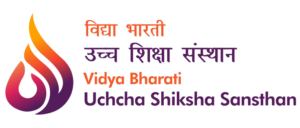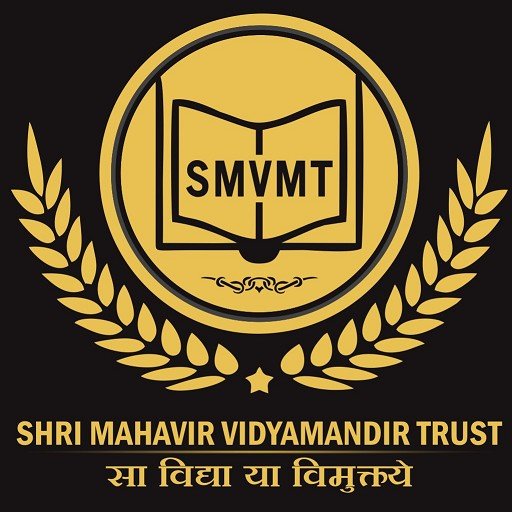Life Skill Education
Duration
6 Months
Course Description
This course is designed to cater to participants from multidisciplinary areas like education, health, counselling, corporate sector, heads of different institutes, women development organizations, social work activists, NGOs, parents, students of higher education and policy makers. The course covers various elements of Life Skills Education (LSE) process, including fundamentals of LSE scope of LSE, theoretical foundations of LSE, different types of Life skills and its relation media, health to| and education professionals, parents and other members of society in skills for better living.
Eligibility:
* Appendix-3
Bachelor’s degree from any recognized Indian or Foreign University.
OR
Completed degree in Teacher Education from any state.
The course is open to all working/non-working participants.
Objective of the Program:
* Appendix-1
- Develop understanding into the fundamentals of life skills.
- Experience self-awareness and develops ways to face demand and challenges of life.
- Examine the theoretical and application-based perspective of life skills education.
- Develop competencies to classify different types of life skills.
- Develop understanding into techniques of education of life skills.
- Explore ways of practicing life skills education.
- Examine the multidisciplinary impact of life skills education.
- Develop competencies to understand and handle issues of adolescent and youth.
- Gain skills to train people for crisis management, empowerment of women and corporate issues.
Program Outcome:
* Appendix-2
The certificate course in Life Skills Education prepares the candidate for rendering services in educational organizations, NGOs. Training Departments of large organizations , Government and Corporate Sectors.
Course Structure
THEORY:
Course I: FUNDAMENTS OF LIFE SKILLS EDUCATIONS
Course II: CORE LIFE SKILLS AND LIFE SKILLS TRAINING
PRACTICUM:
Subject specific work to be selflessly assessed by the concerned teacher. Extension/ Field/ Experimental Work/ Open Book Tests/ Written Assignments/ Case Study/ Action Research Project/ Posters/ Class Presentations etc. for which marks will be given by the concerned teacher.
SCHEME OF EXAMINATION:
Total Marks 100
Internal Assessment for each Course: 80 Marks (40 Marks each paper)
External Assessment for each Course: 120 Marks (60 Marks each paper)
Seats Allotted:
30 Students per batch
Medium of Instruction
Gujarati, Hindi & English
Course Syllabus: *Appendix-3
| Course Syllabus: *Appendix-4 | Hour | |||
|---|---|---|---|---|
| Theory | Practical | Total | ||
| MODULE 1 | INTRODUCATION TO LIFE SKILL EDUCATION | |||
| Unit 1: Concept of Life Skills: | 2 | – | 2 | |
| a) Concept of Life Skills. | ||||
| b) Life Skills, Survival Skills and Livelihood Skills | ||||
| c) Models of life skills. (WHO Model, 4 H Targeting Life Skills Model) | ||||
| Unit 2: Conceptual Framework of Life Skills: | ||||
| a) UN Inter-Agency Meeting, Hamburg Declaration | ||||
| b) Quality Education and Life Skills: Dakar Framework | ||||
| c) Life Skills through the Capability Approach. | ||||
| Unit 3: Theoretical Foundations of Life Skills: | ||||
| a) Theories of Self (Looking Glass Self, Self Determination Theory) | ||||
| b) Theories of Emotions and coping (Psychological Stress-Lazarus, Broaden and build theory of emotions-Fredrickson) | ||||
| c) Theory of Risk and Resilience (Masten, Luther, Becker) | ||||
| MODULE 2 | DEVELOPMENTS OF THE LIFE SKILLS EDUCATION | |||
| Unit 4: Conceptual background of Life Skills Education: | 2 | – | 2 | |
| a) Pillars of education- Learning to Know, Learnig to Do. | ||||
| b) Pillars of education- Learning to Live Together, Learnig to Be) | ||||
| c) Concepts of Life Skills Educations, Intervention models for Life Skill Education. | ||||
| Unit 5: Application of Life Skills Education | ||||
| a) Life Skills Educations for Well -being | ||||
| b) Life Skills Educations for Peace and Civic Engagement. | ||||
| c) Life Skills Educations for Disaster Management | ||||
| Unit 6: Life Skills Education – Perspectives and Challenges | ||||
| a) Life Skills Education in contemporary India. | ||||
| b) Life Skills Education for Adolescents & Parenting. | ||||
| c) Opportunities and challenges in application of Life Skills Educations. | ||||
| MODULE 3 | INTERNAL ASSESSMENT | – | 2 | 2 |
| One Assignment (10 Marks) | ||||
| Filed Work (20 Marks) | ||||
| Seminar (10 Marks) | ||||
| MODULE 4 | Core Life Skills | |||
| Unit 1: Skills of Self Management and Empathy | 2 | – | 2 | |
| a) Self Awareness (Self Concept, Self Esteem, Self-Image, Techniques for enhancing Self Awareness ) and Empathy (Meaning and Techniques to enhance Empathy) | ||||
| b) Coping with emotions (Meeting of emotions, expressing emotions, coping with negative emotions , Cultivating Positive Emotions) | ||||
| c) Coping with stress (Types of stress, signs and symptoms, strategies to manage stress) | ||||
| Unit 2: Social Skills | ||||
| a) Communication Skills ( Types of communications, Styles of Communications, Barrier in communication, strategies for effective communication) | ||||
| b) Interpersonal Skills (Stages of development, Determinants, Maintaining, sustaining and ending a relationship, conflict resolution). | ||||
| c) Negotiation and Refusal Skill ( Stages of Negotiation, Enhancing negotiation skills, refusal skills) | ||||
| Unit 3: Thinking Skill | ||||
| a) Creative thinking (Process and strategies for enhancing Creative Thinking), Critical Thinking (Process and strategies for enhancing Critical Thinking) | ||||
| b) Problem Solving (Stages of Problem Solving, Models of Problem Solving, enhancing problem solving skills) | ||||
| c) Decision Making (Process, Barriers, Techniques, Decision making in a group) | ||||
| MODULE 4 | Life Skills Training | |||
| Unit 4: Life Skills Training Program: Design and Execution | 2 | – | 2 | |
| a) Training needs Analysis | ||||
| b) Designing Life Skills Training Program | ||||
| c) Conducting Life Skills Training (Facilitation Skills- Building and Maintaining Report, Active Listening, Questioning Skills, Engaging Participants, Handling Challenges, Time Management) | ||||
| Unit 5: Methods of Life Skills Training and Evaluation | ||||
| a) Approaches of Life Skills Training (Preventing Approach, Competency Based Approach, Issue Based Approach) | ||||
| b) Method for Life Skills Training (Group Discussion, Debates, Role Play, Storytelling, Situation Analysis, Case Studies, Community Services) Evaluation (Surveys, Questionaries, Check list and Focus Group Discussions) and Reporting(Writing a report, Framework, Executive Summary) of life skills training. | ||||
| Unit 6: Life Skills Training in Contemporary Times | ||||
| a) Media and Life Skills Development (Influence of Media in Life Skill Development, Use of Social Media for Life Skill Development) | ||||
| b) Life Skills for Social Inclusion, Women Empowerment. | ||||
| c) Life Skills for Corporate Sector (Crisis Intervention, Team Building) | ||||
| MODULE 4 | INTERNAL ASSESSMENT | – | 2 | 2 |
| One Assignment (10 Marks) | ||||
| Filed Work (20 Marks) | ||||
| Seminar (10 Marks) | ||||


